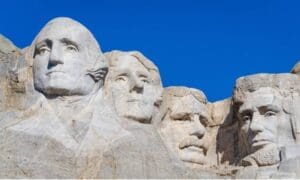Eddie Kirk is a deputy with the Coweta County Sheriff’s Department in Newnan, Ga. He grew up in the shadow of Fort Benning, an Army base in Columbus, Ga. After high school, Kirk enlisted in the United States Army. At a recent Veteran’s Day observation at East Coweta Middle School, Kirk shared with the student body and assembled guests what he had learned from veterans. The categories below are his. The additional comments are mine:
1. HONOR – Samuel Johnson defined honor as “nobility of soul,” which is my personal favorite. It is a way of carrying one’s self, of walking in self-respect. It is having high expectations of one’s self and it means having a good name.
To be a person of honor is to have a high standard, to be a person of integrity, and to conduct one’s self in a blameless manner. It is also to be humble. The concept of honor has been valued throughout time but never more so than in warrior cultures. To live as an honorable person and to die, if need be, an honorable death is not an uncommon attitude among military personnel and veterans.
2. LOYALTY – The definition of loyalty from King Solomon in Proverbs 20:6 is “trustworthiness.” To be loyal is to be trustworthy. If a friend or spouse is loyal, she or he is worthy of our trust. The Webster’s definition of “loyal” is “unswerving in allegiance.”
Robert Bowdrie “Bowe” Bergdahl is a United States soldier who went missing from his post in Afghanistan. He is alleged to have deserted his unit. The soldiers he served with have publicly voiced their disdain for Bergdahl. Why? He was disloyal. Good soldiers are not disloyal. Good soldiers are loyal. They have unswerving allegiance to their nation but, especially, to their unit.
3. COMMITMENT – To commit is to “go all in. ”Warriors are committed — they are committed to their country, to the cause, and to their comrades in arms. Courage is not the absence of fear. Almost all sane people experience fear in the presence of genuine danger.
On Sept. 11, 2001, hundreds of firefighters and police officers who rushed into the Twin Towers in New York perished. Were they unafraid? No, they were scared, afraid for their lives. But they were committed. It is the commitment that pushes people forward in the face of deadly danger. When we see this kind of commitment in action, whether in peacetime or in war, we call it “courage.”
4. SACRIFICE – “No greater love has a man than this, that he lay down his life for a friend.” Veterans understand sacrifice. They know too many people who have demonstrated it by giving their all.
I played football at Dobyns-Bennett High School in Kingsport, Tenn., with Joe Meade. Joe was a year older than I and, after graduation, he joined the Marine Corps. In January 1969, during an operation in Vietnam, Private First Class Meade was attempting to rescue fellow Marines whose lives were in danger. He was killed by an explosive device. Joe was 20 years old. For his courage and sacrifice, he received the Silver Star, the nation’s third highest award for combat valor.
Every year the nation recognizes its veterans. It’s not just that they served honorably. It’s that they have acquired characteristics and attributes that they pass on to others and that they bring back to the civilian world.
One person said to me, “You act like veterans are special people.” They are. With rare exception, they are honorable, loyal, committed, and understand sacrifice. They bring much to any table.
As Deputy Kirk learned, they teach us much by their lives and by their examples. To all our veterans who served honorably — Thank you for your service! A grateful nation salutes you!
[David Epps is the pastor of Christ the King Church, Sharpsburg, GA (www.ctkcec.org). He is the bishop of the Mid-South Diocese which consists of Georgia and Tennessee (www.midsouthdiocese.org) and the Associate Endorser for the Department of the Armed Forces, U. S. Military Chaplains, ICCEC. He may contacted at [email protected].]












Leave a Comment
You must be logged in to post a comment.